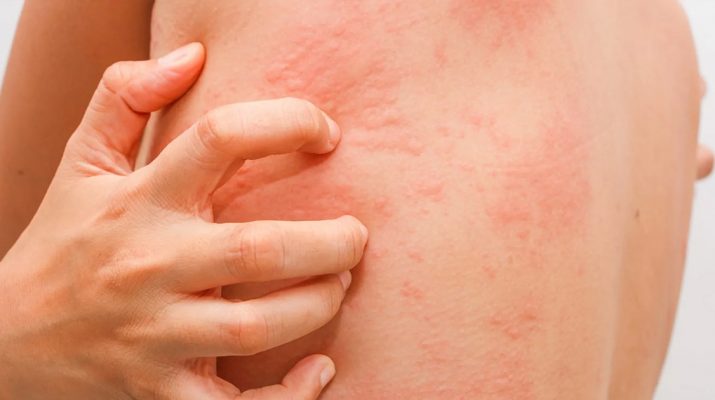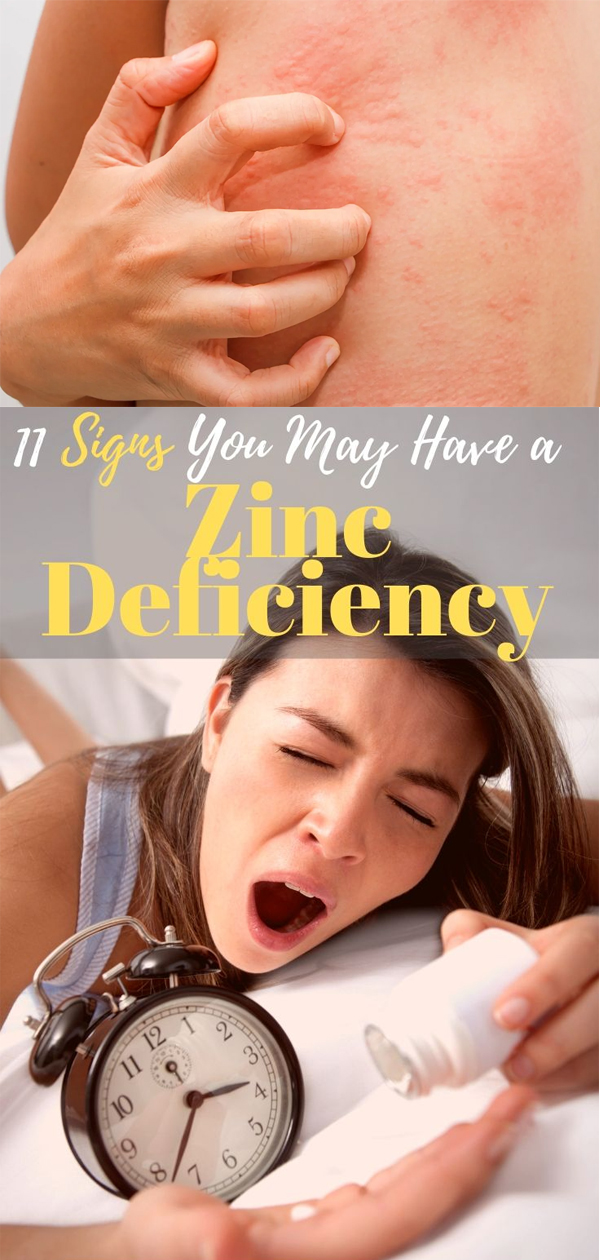Zinc is an incredibly important component that keeps our bodies running healthily and happily. This trace mineral is responsible for a lot of different things all around the body’s system, so not getting enough of this powerful nutrient could have damaging effects on many areas of your health. Yet, 31% of the world and 12% of those in the US experience zinc deficiency, so there’s a chance you have this problem but have been ignoring its symptoms. Fortunately, there are some signs you may have a zinc deficiency.
Here Are 11 Signs You May Have Zinc Deficiency
“A growing body of evidence demonstrates that experimental zinc deficiency can induce depressive-like behavior in animals, which can be effectively reversed by zinc supplementation.” – Walter Swardfager
1. Acne
Zinc has been linked to providing great anti-inflammatory benefits, which can prevent you from having bad breakouts. To be fair, plenty of other things can cause acne, including your skincare routine, the makeup you use, hormonal issues, or even your overall diet. But if you seem to be following all the rules for good skincare and still find your face covered in acne, you may want to consider adding some zinc to your food choices.
2. Sleep Troubles
Lack of sleep is a terrible thing with lots of downsides, including weight gain, lack of focus, less positive thinking, and increased risk of injury. So, you’ll want to fix this pronto, and you can with some extra zinc in your diet. According to research, zinc helps to produce and regulate the sleep hormone melatonin in the body, so a lack of it can cause insomnia or disturbed sleep. Studies have found that taking a zinc, magnesium, and melatonin supplement can greatly boost your sleep quality.
3. Diarrhea
A zinc deficiency can affect the body’s immunity, which we’ll talk more about later, but when your immune system is weak, diarrhea becomes more of an issue. This can lead to a higher chance of contracting bacterial infections – including E. coli. This is especially prevalent in children, but the good news is that zinc has been found to fantastically treat babies six months and older. Do note that you should never give a supplement to a baby without asking their doctor first!
4. Hearing Issues
Believe it or not, lacking zinc can cause you to experience hearing problems. A study found that 12 in 100 people who experience ringing ears – a condition known as tinnitus – are also suffering a zinc deficiency. Meanwhile, other studies have shown that hearing loss can be treated better with zinc than with steroids! This is likely due to the fact that zinc has anti-inflammatory and antioxidant properties that help cochlear health.
5. Your Wounds Are Slow-Healing
When you get a cut or scrape of any kind, blood clots as quickly as it can. This is to prevent you from bleeding out in major injuries, and to prevent any infections – whether bacterial or viral – in minor injuries. If you’re low in zinc, the weakness in your immune system can cause any open cuts to heal more slowly, so your wounds might stay with you for longer. This is especially true since the body needs zinc for tissue repair.
6. Stunted Growth (In Children)
Zinc deficiency is much easier to spot in young children who are still growing. Kids who don’t get enough of the mineral are likely to experience stunted growth or even stop growing altogether. This is because zinc has a huge influence on the development of cells. This is why it’s so vital that kids get all the zinc they need. Apparently, most children in the United States are getting their needed 10 milligrams per day from their normal food.
7. Low Immunity Levels
Zinc is a very, very important mineral for the immune system. It promotes the growth of T-cells and is vital in their differentiation towards our white blood cells, which is what we need in order to prevent disease. It also works in killing off bacteria, cancerous cells, and viruses in a process known as apoptosis, otherwise called programmed cell death.
Zinc also forms the structure for a wide range of proteins and hormone receptors, which are both necessary for mood balancing and health. On top of all that, it supports the protection of multiple cell membranes and even plays a key role in the transcription of genes! Basically, if you’re without zinc, you’re without a functioning immune system.
8. Worsening Vision
The eyes contain a large amount of concentrated zinc, especially in and around the retina. This is largely due to the fact that zinc is responsible for the transportation of vitamin A upwards from the liver and finally into the retina, and this vitamin A will keep protective pigments present in the eyes, thus allowing for sharp vision.
9. More Allergic Reactions
Zinc plays a big role in the way that the body stores histamine, which is the component responsible for allergy control. Too little zinc will lead to an overproduction of histamine, and this can cause higher allergy sensitivity and other allergy symptoms. This is especially prevalent in those with chronic conditions, especially chronic stress, which is responsible for something called adrenal fatigue. This, in turn, causes a deficiency in magnesium, calcium, and zinc.
10. Thinning Hair And/Or Bald Patches
Those with zinc deficiency are heavily at risk for developing hair thinness, bald patches, or even alopecia. You are even more at risk of this symptom if you are also dealing with adrenal fatigue, so make sure you’re getting enough zinc or taking a supplement for it.
11. Food Is Less Tasty
If you’re eating your favorite foods and find them less appetizing than they once were, it could be a sign that you aren’t getting enough zinc. This is because zinc can affect all of your senses, not just hearing and vision. Your sense of smell and taste can be affected too, leading you to be unable to properly taste food.
Final Thoughts
Getting enough zinc in your diet is vital for bodily health. You can easily obtain this mineral from chickpeas, spinach, mushrooms, yogurt, baked beans, pumpkin seeds, and cashews. Also, you can find it in meats like beef, chicken, lamb, pork, crab, lobster, and oysters. By making sure you’re incorporating zinc into your daily diet, you’re doing your entire body a huge favor!


